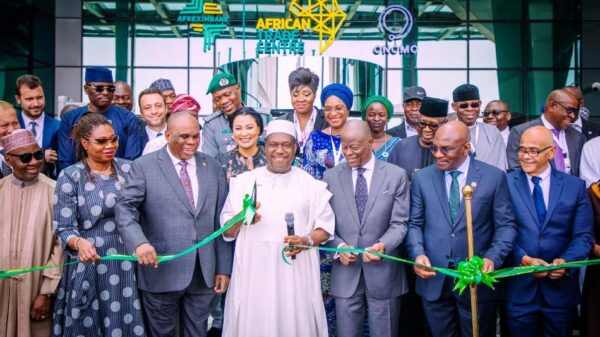Michael Oluwagbemi, Programme Coordinator, Presidential CNG Initiative (PCNGI), says over 491 million dollars investments have been attracted to AutoCNG and created over 9,000 direct and 75,000 indirect jobs in the past one year.
Oluwagbemi said this while addressing State House Correspondents on Monday.
He said the conversion capacity of vehicles from pure petrol and diesel to Bifuel vehicles had increased from seven when the programme started to more than 200.
He said the Conversion Incentive Programme (CIP) introduced by President Bola Tinubu in August 2024 led to the employment of 3,000 new technicians.
He said the programme was to enable one million free or subsidised conversion of certain classes of vehicles, especially public commercial transports, rideshares and MDA vehicles to be done by the PCNGI.
He said about 22,000 conversion kits were initially procured and started being delivered in October 2024 to the programme by the Ministry of Finance.
He added that 10,000 conversion centers would be established by the end of this quarter under this programme having started in December 2024.
He said the programme had been expanded by the PCNGI to enable discounts for public servants to finance the balance of costs for converting their vehicles working with the Credit Corp.
“If you also recall, to demonstrate the efficacy of CNG and electric vehicles (EV) platforms, CNG buses and tricycles as well as EV buses were procured on our behalf by the Federal Ministry of Finance. A total of 655 buses were procured.
“About 421 CNG Buses and 36 EV buses have been delivered so far, and the programme has deployed 405 buses either as part of the settlement of terms with the NLC and TUC as part of the wage negotiations,” he said.
Oluwagbemi said the PCNGI was established to facilitate the adoption of natural gas and other alternative fueled vehicles including electric vehicles.
He said this was in the light of the removal of fuel subsidy that led to a spike of transportation costs at the onset of the policy as the President sought to rescue the nation.
He said there had been a visible gap in CNG availability with longer queues in some locations but assured this was temporary.
He attributee this to the influx of CNG trucks and the over 30,000 CNG conversions undertaken by the private sector, which more than quintupled the CNG fleet of Nigeria.
“This naturally will put pressure on our gas infrastructure. But the PCNGI is not relenting in solutions,” he said.
He said PCNGI launched a scheme called the Refueling On lending Programme that would provide equipment at cost for refueling to key conversion centers and refueling partners.
He said 25 sites were billed to benefit and 15 states slated for this: “Already the first site in Kwara state is live, and Kogi, Ekiti, Rivers and Abuja will soon join them before May 1, 2025.
“By June 12 we shall have Kaduna, Abia, Enugu joining the fray with Niger, Kano and Benue following shortly thereafter.”
He said the PCNGI embarked on intensive stakeholder engagement and public awareness campaign from May to November 2024 to convince the private sector to invest critical funds alongside the government’s investments.
This, he said, stimulated demand by commercial vehicle operators and private vehicle users alike.
He said to further bolster infrastructure, PCNGI had co-opted private sector partners to deploy over 150 new refueling locations in the next 18 months.
“NNPC have already deployed 12 sites, with 8 to go this quarter, and approval for additional 100 sought and secured for the next 18-24 months.
“NIPCO has imported equipment for 32 daughter station sites with 22 in operation and eight under construction. Bovas has eight under construction and AY Shafa has completed one with nine under construction.
“Entities like Ibile Oil and Gas, MBH and Mikano are also investing in not just daughter stations but also mother stations,” he said.
Oluwagbemi said the sole safety incident that occurred in Benin last year was a result of economic saboteurs engaged in illegal fabrication of CNG cylinders and were arrested by the police.
He said with Nigeria Gas Vehicles Monitoring System (NGVMS) in place that incident would be avoided as only properly labelled and accredited vehicles with certified tanks would be refueled.
“The necessary steps to launch the NGVMS are ongoing, and we expect it to be in place by year end. We won’t relent in ensuring the safety of lives and investments of participants in the sector,” he assured.



























